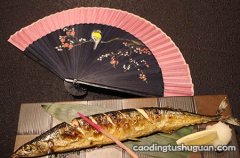人教版八年级上册英语语法

文章插图
【导语】英语语法的精髓在于掌握语言的使用 。下面是小编为您整理的人教版八年级上册英语语法【七篇】,仅供大家学习参考 。
Unit1Howoftendoyouexercise?
Grammar:特殊疑问句:wh-questions:what,who,where,when,which,whose,why,whom等 。
【人教版八年级上册英语语法】特殊疑问句的构成及用法:
1.结构:特殊疑问词+一般疑问句,即:特殊疑问词+be/助动词/情态动词+主语+谓语/表语(+其他)
疑问代词:
1)Who:谁 。做主语,用来指人Whoistheboyunderthetree?
2)Whom谁,做宾语,用来指人Whomareyouwritingto?
3)Whose谁的,用来指所属关系,如果做定语,一般后接名词Whosepenisthis?
4)Which哪个,哪些,用来指对人或物在一定范围之内进行选择Whichgirlswillbeinthesportsmeeting?
WhichpenisLily’s?
5)What什么,通常指物,也可指人,一般用在没有指出范围的情况下Whatcanyouseeinthepicture?Whatareyoudoingnow?
疑问副词:
1)When:何时,询问时间Whenwillshecomeback?
2)Where何地,询问地点,Wheredoyoucomefrom?
3)Why为什么,询问原因,Whyareyoulateforschool?
4)How如何,询问手段、方式、工具以及程度等
Howdoyouusuallygotoschool?
5)Howold多大,询问年龄,HowoldisJim’slittlebrother?
6)Howmany/much多少,询问数量
Howmanybirdsarethereinthetree?
7)Howfar多远,询问距离,
Howfarisitformyourhometoschool?
8)Howlong多长,多久,询问时间的长度或距离
HowlongwillyoustayinBeijing?
9)Howoften多长时间按一次,询问频率
Howoftendoyougotoseeyourgrandparents?
10Howsoon多久,询问时间Howsoonwillyoucomeback?
频率副词:表示动作发生的频率,never,hardlyever,sometimes,often,usually,always.
Unit2What’sthematterwithyou?
Grammar:
1.用have来描述身体不适have/havegota+疾病名字;得了……病
2.情态动词should,情态动词should,can,may,must没有人称和时态的变化,后接动词原形.
Unit3Whatareyoudoingforvacation?
Grammar:现在进行时表将来一般将来时
表示将要做某事或计划打算做某事要用到句型“be+doing”其中be是助动词,它有人称和单复数的变化 。Be:am,is,are.be+v.ing是现在进行时的形式,但用于表示将来 。用进行时表将来,常用于表示即将来临的未来预定要做的事情,一般指个人计划要做的事 。用于此情况的动词一般是表示位置转移的动词,如,go,come,leave,start,arrive,move等 。
一.肯定句中,结构为“be+doing.”
Iamgoingshoppingthisafternoon.
二.否定句是在be之后加not.I’mnotgoingtoshoppingthisafternoon.
三.一般疑问句是将be置于句首Areyougoingshoppingthisafternoon?—Yes,Iam/weare.No,I’mnot./Wearen’t.
四.特殊疑问句“疑问词+一般疑问句语序 。”
Whatareyoudoingforvacation?
Whenishegoingcamping?
Whoareyougoingtherewith?
Whereisshegoing?
Unit4Howdoyougettoschool?
Grammar:How引导的特殊疑问句:是指以How,howfar,howlong,howold,howmany,howmuch等词开头的疑问句 。
Howdoeshegettoshool?----Hetakesthetraintogettoshool.
Howlongdoesittaketowalk?----Ittakesabout35minutestowalk.
Howfarisitfromyourhometoschool?It’sfourmilesfrommyhometoschool.
Howoldishenow?Sheistwelveyearsoldnow.
Howmanystorybooksdoyouhave?Ihavefivestorybooks.
Howmuchisthiscoat?Thiscoatis200yuan.
特殊疑问句的简略结构:howabout…?+名词或动词-ing形式,用于提出建议、请求或征求意见、询问消息等 。如:Howaboutplayingtennis?
乘坐交通工具的表达方式:bysubway/train/bike...,onfoot...
Iusuallytakethebustoschool./Iusuallygotoschoolbybus(on/inthebus).
Myfathersometimesrideshisbiketowork./Myfathersometimesgoestoworkbybike(onhisbike).
Mygrandmotheralwayswalkstothesupermarket./Mygrandmotheralwaysgoestothesupermarketonfoot.
Unit5Canyoucometomyparty?
Grammar:情态动词can及邀请句式及其问答
一.情态动词can的用法:
Can是最长用的情态动词,其后跟动词原形,can的否定形式为cannot,can’t.
1.can表“能力”,意思是:能,会Icanplaybasketball,butIcan’tswim.
2.can表示能力时可和beableto互换,beableto有更多的时态,常被用来表示can所不能表示的将来或完成的概念 。E.g.Theywillbeabletomakeamodelspaceshipinthreemonths.
3.表示“可能性”,意思是:可以,可能 。Thatbigcinemacanseat5,000people.
4.表示允许,意思是可以能够YoucanhavethebookwhenIhavefinishedit.
5.表示“惊讶、不相信等(用于疑问句、否定句或感叹句中” 。意思是“会、可能 。”
Thiscan’tbetrue.Canitbetrue?
二.如何发出、接受和谢绝别人的邀请
1.表达邀请的常用句型:
Canyoucometo…?
Couldyoucometo…?
Wouldyouliketocometo…?
Doyouwanttocometo…?
2.接受邀请的常用句型:
Sure.Certainly.Ofcourse.OK.I’dloveto.
3.谢绝邀请的常用句型:
I’msorry,Ican’t.butIhaveto…
I’mafraidIcan’t.Ihaveto…
Idon’tthinkIcan.Ihaveto…/I'mdoing.....
Unit6I’mmoreoutgoingthanmysister.
Grammar:形容词的比较级
一.规则变化、不规则变化(课本P93)
二.than是比较级中最常见的标志词,意思是“比” 。用于引出比较的对象 。1.Hedrawsbetterthanme.2.You’reolderthanIam./Youareolderthanme.
三.形容词比较级前,有时可以用much,far,alittle,abit,even,threetimes等词来修饰 。much和far表示“……得多”,muchbetter好得多,alittle,abit表示稍微,一些,一点 。alittleshorter,稍微矮点;even表示“甚至,更加,还要……”evenbigger还要大些,threetimes表示“…三倍”,如threetimesbiggerthan比……大三倍
Very绝不可以用来修饰比较级,very,so,too,quite等修饰原级
Unit7Howdoyoumakebananamilkshake?
Grammar:
可数名词与不可数名词
一.可数名词
英语中的物质名词大体上可分为可数名词和不可数名词 。可数名词指物体的数量可数 。其单数形式可在名词前加a或an,表示一个,如apear.其复数形式要在词尾加-s,或-es(特殊情况除外),如twobananas,threetomatoes,manyapples,afewstudents
二.不可数名词
1.不可数名词指物体的数量不可数 。不可数名词没有单复数之分,也不能在词前直接加冠词a或an.表示不可数名词的数量时可在不可数名词前加相应的由量词构成的短语 。如abagof…2.常见的量词短语有:
apieceof…acupof…ateaspoonof…abottleof…
3.不可数名词还可以用下面的词表示数量:much(muchrain),
alittle(alittlemilk).
4.既可以修饰不可数名词又可以修饰不可数名词的词有:
Lotsof=alotof许多,大量some一些(用于肯定句)any一些(用于否定句和一般疑问句)
推荐阅读
- 仁爱版8年级下册英语语法
- 仁爱版初二下册英语语法
- 人教版初二年级下册英语语法
- 初二下册英语语法归纳外研版
- 仁爱版八年级下册英语语法2021
- 人教版八年级下册英语语法归纳
- 初二下册英语语法总结仁爱版
- 初二下册英语语法仁爱版
- 人教版初二下册英语语法
- 外研版初二年级下册英语语法
















